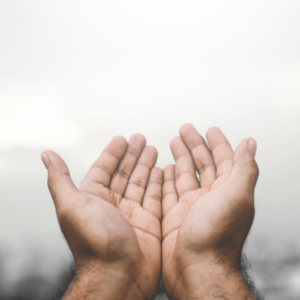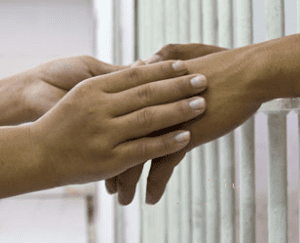Unburdening the Soul: Forgiveness in Spirituality

Introduction
In the intricate tapestry of human experience, forgiveness stands out as a profound and transformative thread. Rooted in the essence of spirituality, forgiveness transcends the boundaries of time and culture, offering solace to those who seek inner peace and healing. Forgiveness is a bridge we build, not over rushing rivers of anger, but over the still, murky waters of pain, leading us to a haven of inner peace and growth. In this exploration, we delve into the spiritual dimensions of forgiveness, unraveling its significance, practices, and the profound impact it has on our journey toward enlightenment.
Understanding Forgiveness in Spirituality
Forgiveness, in its spiritual context, extends far beyond the mere act of pardoning someone for their transgressions. It is a profound and liberating force that fosters a deep connection with one’s higher self and the divine. In various spiritual traditions, forgiveness is considered a sacred practice that enables individuals to release the shackles of resentment and find harmony within.


Forgiveness is not about condoning the actions of others; rather, it is a gift one gives oneself. In forgiving, we relinquish the burden of carrying grudges and resentments, allowing our hearts to be lightened and our spirits to soar. This act of mercy aligns with the fundamental principles of compassion and love that are central to many spiritual teachings.
Across diverse spiritual traditions, forgiveness is recognized as a cornerstone of personal evolution. Whether in the teachings of Buddha on Metta (loving-kindness), the Christian concept of turning the other cheek, or the Islamic emphasis on pardoning for Allah’s sake, forgiveness transcends differences, uniting us in a common quest for liberation.
Key Components of Forgiveness in Spirituality
- Self-Forgiveness: In the journey towards spiritual enlightenment, the first step often involves forgiving oneself. Many spiritual traditions emphasize the importance of self-compassion, recognizing that we are all imperfect beings on a quest for growth. By forgiving ourselves, we open the door to profound self-love and acceptance.
- Compassion as a Catalyst: Compassion is the driving force behind forgiveness in spirituality. When we approach forgiveness with a compassionate heart, we acknowledge the shared humanity that binds us all. This recognition allows us to transcend the ego and connect with the divine essence within ourselves and others.
- Letting Go of Resentment: Resentment acts as a barrier to spiritual growth. Forgiveness involves the intentional release of resentment, freeing ourselves from the negative emotions that can weigh down the soul. By letting go, we create space for spiritual healing and transformation.
- Embracing Impermanence: Spirituality often teaches the impermanence of all things. Forgiveness aligns with this principle by acknowledging that holding onto grievances only perpetuates suffering. Embracing forgiveness means embracing the ever-changing nature of life and finding peace in the present moment.
- Propelling us on the path of spiritual growth:Forgiveness is not an act of weakness; it’s a demonstration of strength, resilience, and a commitment to our spiritual evolution. It liberates us from the lower vibrations of anger and resentment, propelling us towards higher states of consciousness and compassion.
Practical Applications of Forgiveness in Spirituality
- Meditation and Mindfulness: Meditation and mindfulness practices play a pivotal role in the cultivation of forgiveness. Through focused breathwork and contemplation, individuals can gain clarity on their emotions and develop the awareness necessary to forgive themselves and others.
- Rituals of Release: Many spiritual traditions incorporate rituals that symbolize the act of forgiveness. These may include ceremonies, prayer, or symbolic gestures that mark the intentional release of grievances. Such rituals provide a tangible and transformative experience for individuals seeking spiritual healing.
- Affirmations and Mantras: Positive affirmations and spiritual mantras can serve as powerful tools for fostering forgiveness. By repeating affirmations that focus on love, compassion, and release, individuals can reprogram their minds and cultivate a forgiving mindset.
- Embrace the Power of Forgiveness: Beyond Boundaries : The transformative power of forgiveness extends beyond interpersonal relationships. We can also practice self-forgiveness, releasing ourselves from the guilt and shame of past mistakes. We can forgive the world for its imperfections, choosing to see the good amidst the challenges. And ultimately, we can open ourselves to the forgiveness of a higher power, finding solace and grace in the divine embrace.
The Ripple Effect of Forgiveness
Forgiveness is not a solitary act; its impact extends far beyond the individual who forgives. As we forgive, we contribute to the collective consciousness, creating a ripple effect that touches the lives of those around us. In forgiving others, we inspire them to embark on their own journeys of spiritual growth and healing.
Furthermore, the act of forgiveness promotes harmonious relationships and fosters a sense of unity within communities. By recognizing our shared vulnerabilities and forgiving each other, we build bridges that transcend differences, creating a more compassionate and interconnected world.

Conclusion
In the rich tapestry of spiritual exploration, forgiveness emerges as a golden thread that weaves together the intricate patterns of inner peace and enlightenment. By understanding forgiveness as a transformative practice rooted in compassion and love, we unlock the potential for healing and growth within ourselves and our communities. As we embrace forgiveness, we not only free ourselves from the chains of resentment but also contribute to the collective awakening of the human spirit. May forgiveness be the guiding light on our spiritual journey, illuminating the path to a more compassionate and harmonious existence.
Frequently Asked Questions
Q1: What is the significance of forgiveness in spirituality?
A1: Forgiveness in spirituality holds profound significance as it is considered a transformative practice that fosters inner peace and healing. It goes beyond pardoning others and involves releasing resentment, embracing compassion, and connecting with one’s higher self.
Q2: How does forgiveness contribute to spiritual growth?
A2: Forgiveness contributes to spiritual growth by allowing individuals to release the burdens of resentment and negative emotions. It fosters self-compassion, promotes a forgiving mindset, and aligns with the fundamental principles of love and acceptance taught in many spiritual traditions.
Q3: Is forgiveness only about pardoning others, or does it include self-forgiveness?
A3: Forgiveness is a holistic concept that encompasses both pardoning others and self-forgiveness. It recognizes the imperfections inherent in human nature and encourages individuals to extend compassion to themselves as well as to others.
Q4: How can mindfulness and meditation support the practice of forgiveness in spirituality?
A4: Mindfulness and meditation play a crucial role in forgiveness by cultivating awareness and clarity. These practices provide a space for individuals to reflect on their emotions, release resentment, and develop a mindset conducive to forgiveness and spiritual healing.
Q5: Are there specific rituals associated with forgiveness in spirituality?
A5: Yes, various spiritual traditions incorporate rituals that symbolize the act of forgiveness. These rituals may include ceremonies, prayers, or symbolic gestures that mark the intentional release of grievances and contribute to the transformative experience of forgiveness.


5 thoughts on “Unburdening the Soul: Forgiveness in Spirituality”